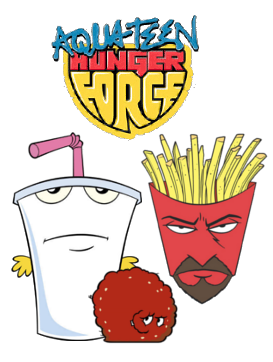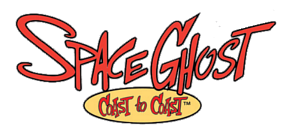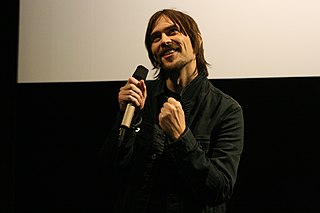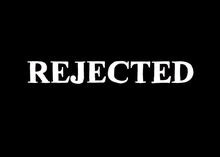
The Ren & Stimpy Show, commonly referred to as simply Ren & Stimpy, is an American animated television series created by Canadian animator John Kricfalusi for Nickelodeon. Originally produced by Spümcø, the series aired from August 11, 1991, to December 16, 1995, spanning a total of five seasons and 52 episodes. The series follows the misadventures of Ren Höek, an emotionally unstable and psychopathic chihuahua dog; and Stimpy, a good-natured and dimwitted Manx cat. It is the third cartoon to be aired of the original three Nickelodeon animated series known as "Nicktoons", alongside Doug and Rugrats, and is considered to be one of the progenitor series of the brand.

Aqua Teen Hunger Force, sometimes abbreviated as ATHF or Aqua Teen, is an American adult animated television series created by Dave Willis and Matt Maiellaro for Cartoon Network's late night programming block Adult Swim. It is about the surreal adventures and antics of three anthropomorphic fast food items: Master Shake, Frylock, and Meatwad, who live together as roommates and frequently interact with their human next-door neighbor, Carl Brutananadilewski.

Courage the Cowardly Dog is an American animated comedy horror television series created by John R. Dilworth for Cartoon Network. It was produced by Dilworth's animation studio, Stretch Films. The eponymous character is a dog who lives with an elderly couple in a farmhouse in the middle of Nowhere, a fictional town in Kansas. In each episode, the trio is thrown into bizarre, frequently disturbing, and often paranormal or supernatural adventures. The series is known for its dark, surreal humor and atmosphere.

Spümcø, Inc. was an American animation studio that was active from 1989 to 2005 and based in Los Angeles, California. The studio was best known for working on the first two seasons of The Ren & Stimpy Show for Nickelodeon and for various commercials. The studio won several awards, including an Annie Award for Best Animated Short Subject for the music video of the song "I Miss You" by Björk.
Ah, L'Amour (1995) is Don Hertzfeldt's first 16mm student animated short film, completed at the age of 18 at UC Santa Barbara. Though produced for a beginning film class and never meant to be exhibited, the short had a long life at animation festivals, launching Hertzfeldt into cult status at a young age. In 1998, the short won the Grand Prize Award for "World's Funniest Cartoon" from the HBO U.S. Comedy Arts Festival.

Harvey Birdman, Attorney at Law is an American adult animated television sitcom created by Michael Ouweleen and Erik Richter for Cartoon Network's late-night programming block, Adult Swim. The first season of Harvey Birdman, Attorney at Law is the first adult animated production to be produced by Cartoon Network Studios. A spin-off of Space Ghost Coast to Coast, the series revolves around the activity of the Sebben & Sebben law firm, which is staffed mainly by superheroes and other characters who had originally been featured in past Hanna-Barbera cartoons, most notably Birdman and the Galaxy Trio.

The Fleischer Superman cartoons are a series of seventeen animated superhero short films released in Technicolor by Paramount Pictures and based upon the comic book character Superman, making them his first animated appearance.

Space Ghost Coast to Coast is an American adult animated comedy late-night talk show created by Mike Lazzo for Cartoon Network and hosted by a re-imagined version of the 1960s Hanna-Barbera cartoon character Space Ghost. It is the first TV show to be produced by Williams Street, the company to start up Adult Swim in the early 2000s. In contrast to the original 1960s series, Space Ghost, which aired as a standard Hanna-Barbera Saturday-morning superhero cartoon, Space Ghost Coast to Coast is a reboot and sequel of the series intended for teens and adults, reinterpreted as a surreal spoof talk show and animated using the original series' artwork. Early seasons are more of a parody of late-night talk shows, while later seasons rely more on surrealism and non-sequitur humor.
The Animation Show is a touring festival of animated short films that was first held in fall 2003. It was sponsored by MTV, and was created by award-winning animators Mike Judge and Don Hertzfeldt. Due to its association with MTV, the showcase was not intended for children, as the festival was more aimed at adult audiences, with its main kid-friendly equivalent being Nickelodeon's Nicktoons Film Festival, presented by Frederator Studios.

Cartoon Planet is an American television programming block that originally ran from 1995 to 1998 and 2012 to 2014 on Cartoon Network. A spin-off of Space Ghost Coast to Coast, the series centered on Space Ghost recruiting his imprisoned evil nemesis Zorak and his loud and dimwitted archenemy Brak to assist him in hosting a variety show.

Ren & Stimpy "Adult Party Cartoon" is an animated television series created by Canadian animator John Kricfalusi for the cable network TNN / Spike TV. The series was developed as a more "extreme" revamp and spin-off of The Ren & Stimpy Show, which previously aired on the American cable network Nickelodeon. The series premiered on June 26, 2003, and was removed from the network on July 24, after airing only three episodes; the remaining episodes were released on DVD. During its run, Adult Party Cartoon was heavily panned by critics, audiences and fans of the original series. It has been referred to as one of the worst animated series of all time.

Adobe Flash animation is an animation that is created with the Adobe Animate platform or similar animation software and often distributed in the SWF file format. The term Adobe Flash animation refers to both the file format and the medium in which the animation is produced. Adobe Flash animation has enjoyed mainstream popularity since the mid-2000s, with many Adobe Flash-animated television series, television commercials, and award-winning online shorts being produced since then.

Billy's Balloon is a 16 mm animated short by Don Hertzfeldt. It was his 4th and final student film at UC Santa Barbara. Similar to his other cartoons, he utilizes a minimalist stick-figure technique.
Lily and Jim (1997) is a 16mm animated short film by Don Hertzfeldt. It is Hertzfeldt's third student film from UC Santa Barbara, for which he single-handedly animated over 10,000 drawings. In the film, an awkward blind date between a hopeless couple goes from very bad to much worse. Voice actors Robert May (Jim) and Karin Anger (Lily) improvised a number of their dialogues. The films closing credits feature instrumental piano music called "Moving Thirds" by singer-songwriter Beth Waters.

Genre is a 1996 animated meta-comedy short film by animator Don Hertzfeldt, his second 16mm student film, produced at the age of 19.
The Meaning of Life is a 35mm animated short film, written and directed by Don Hertzfeldt in 2005. The twelve-minute film is the result of almost four years of production and tens of thousands of drawings, single-handedly paper animated and photographed by Hertzfeldt.

Cartoon Network is an American cable television channel owned by Warner Bros. Discovery. It is a part of The Cartoon Network, Inc., a division that also has the broadcasting and production activities of Boomerang, Cartoonito, Adult Swim, and Toonami under its purview. The channel is headquartered at 1050 Techwood Drive NW in Atlanta, Georgia.
The Problem Solverz is an American animated television series created by Ben Jones for Cartoon Network. It follows Alfe, Roba, and Horace; a group of detectives in their troubled town, Farboro.

Don Hertzfeldt is an American animator, writer, and independent filmmaker. He is a two-time Academy Award nominee who is best known for the animated films It's Such a Beautiful Day, the World of Tomorrow series, and Rejected. In 2014, his work appeared on The Simpsons. Eight of his short films have competed at the Sundance Film Festival, a festival record. He is also the only filmmaker to have won the Sundance Film Festival's Grand Jury Prize for Short Film twice.

It's Such a Beautiful Day is a 2012 American experimental adult animated drama film directed, written, animated, photographed, produced and narrated by Don Hertzfeldt.

















